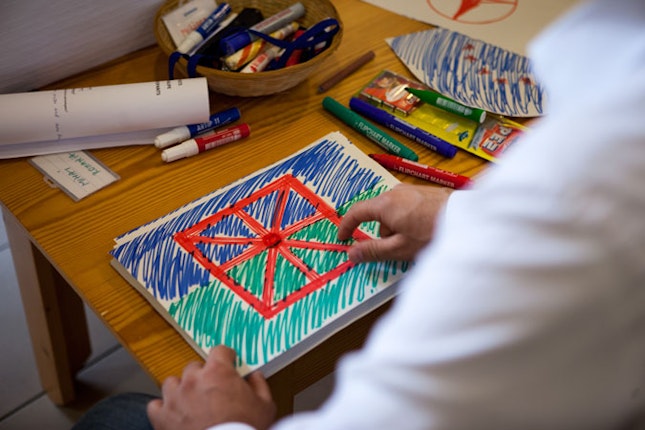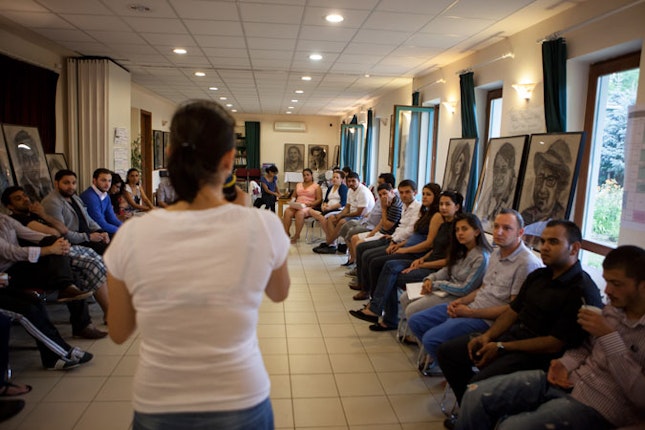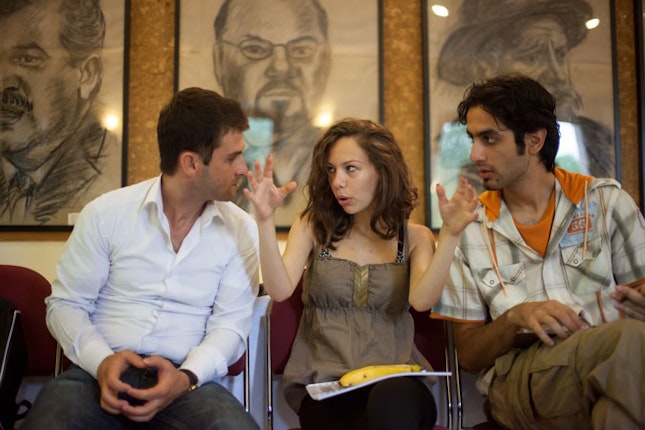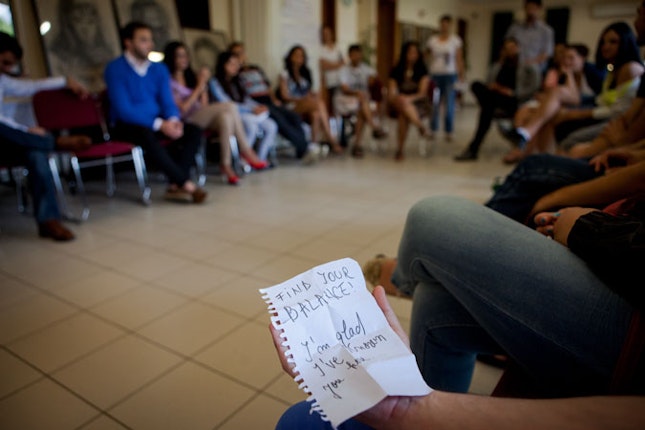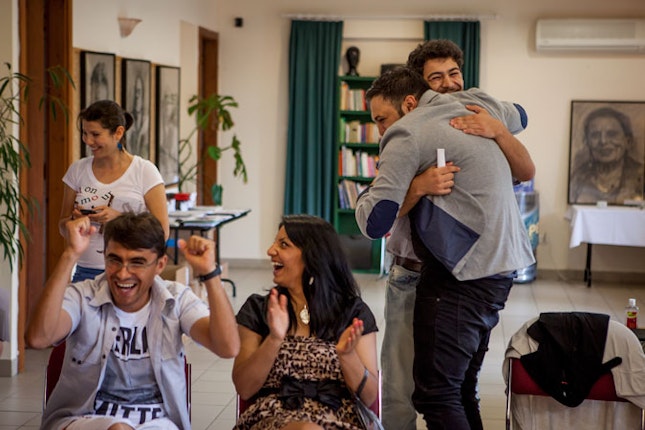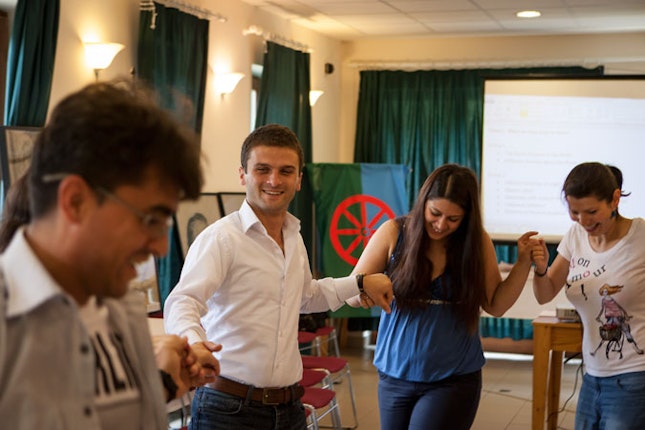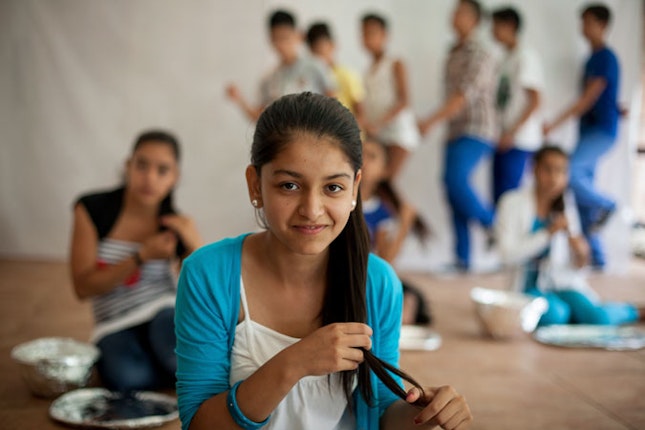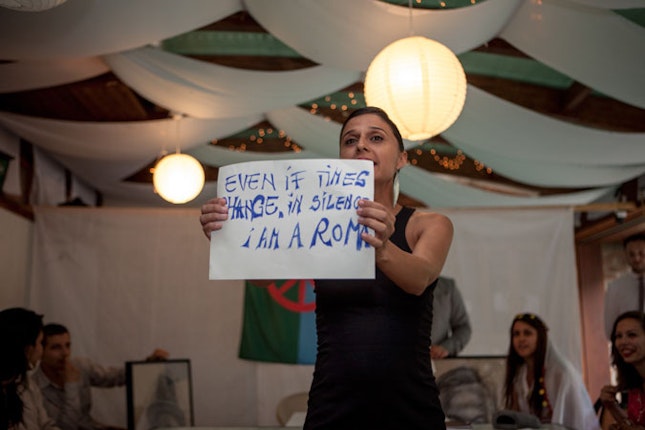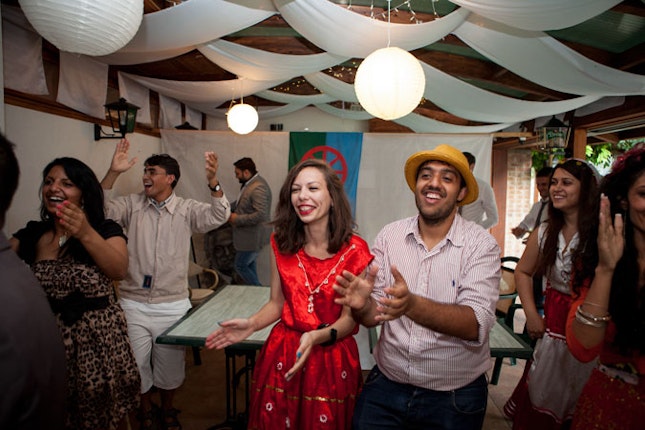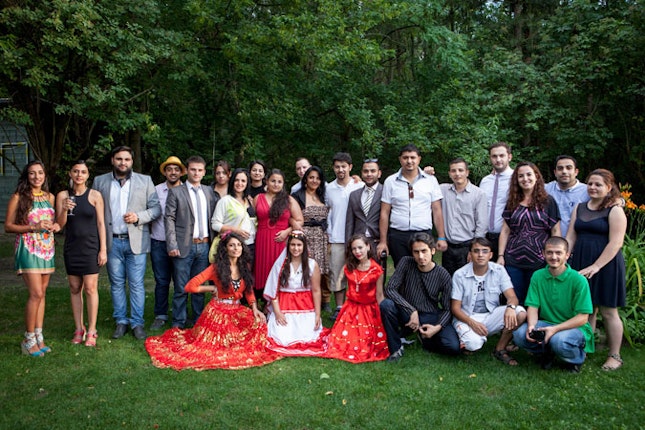Knowing Our History and Culture Helps Us Build a Sense of Pride
By Eleanor Kelly
Understanding who we are is maybe one of life’s biggest questions. For young Roma who can face prejudice and stigma, feel shame and inferiority or are unaware of the depth of their culture and history, answering this question is not easy. In July this year, the second ever Barvalipe Roma Summer camp took place in Hungary. Young Roma between the age of 18 and 30 years old from Spain, Romania, Macedonia, Turkey, Hungary, Czech Republic, Bulgaria, Kosovo and Albania came to take part.
Barvalipe is about building Roma identity; Barvalipe is encouraging commitment by Roma for Roma; Barvalipe is learning Roma history and language; Barvalipe is forging ties between tomorrow’s Roma leaders; Barvalipe is nurturing civic duty and social responsibility; Barvalipe is discovering Roma achievements and role models. Barvalipe is Roma pride.
In this interview, Albert Memeti, originally from a village near Tetovo in north-western Macedonia and soon beginning a Masters in Economic Policy in Global Markets in the Central European University in Budapest, discusses his experience at Barvalipe.
What did you expect from Barvalipe?
I hoped myself and the other Roma participants could overcome our own stereotypes about ourselves. I’m from Macedonia, and there we have built a strong identity, we declare ourselves openly as Roma, we have good laws, well institutionalized programs for Roma, we identify as Roma. And yet we have our own stereotypes about other Roma; someone who is half Roma for example, or Roma from a different religion.
My motivation in coming here was to show other groups that we have to first get rid of the stereotypes amongst ourselves, to build stronger relations among us. Only then can we educate other non–Roma and show them who the Roma really are, to put forward our own “image” rather than let others speak for us or about us. Every human being is viewed through the prism of stereotypes; Roma are not immune from doing this as well, consciously or subconsciously.
A sense of unity amongst Roma in Europe is so important. At Barvalipe we have Roma people from Albania, Romania, Spain, Turkey, Macedonia and many other countries. Here we are 30 different characters speaking about Roma. Now at the end of Barvalipe we are the same 30 different people but speaking with one voice.
I am proud to be Roma, and I think that each of us now is richer with one new chapter to his or her identity.
What has been your most memorable part of Barvalipe so far?
Our trip to Auschwitz has been the most memorable part so far. I was taught about Auschwitz in history, I read about it, almost like it was a story. But when I was there and I saw it with my eyes, I was conflicted. In the field of history, I was so proud I had learned about the history of Macedonia and world history. But I never had the opportunity to learn about Roma history because in the official history sections, Roma are not mentioned at all.
Coming here to Barvalipe and visiting Auschwitz, I learned a new chapter of Roma history. This chapter might be the most important one because it seems that the history of Roma could be repeated again. Not so many people know about the Roma holocaust during World War II. It’s our responsibility to teach our younger generation and others about Auschwitz.
Going to Auschwitz is not just to know who you are but to feel who you are and what happened to Roma; it’s not about the knowledge, it’s about the feeling and what we must do so that history is not repeated.
Why is it important to know about your history and culture?
One of the most important things is coming here and hearing about our history, our language and our roots; because getting to know yourself means you start to discover new things; you realize who you really are. You realize that Roma have a rich history, rich culture, “barvale” (rich in Romanes) Roma role models who guide us. Knowing our history and culture helps us construct our identity and build a sense of pride around being part of the Roma nation. It gives us an opportunity to speak in one language and to have one vision about our future.
How will you use this experience at Barvalipe in the future?
What will we do after these ten days? We must take responsibility for the next generation who don’t know about Roma history, Roma language, culture; responsibility not just to educate ourselves but to organize ourselves in making our own history and future. This experience here will guide me to the future path of my career and help me lend a hand to others in understanding what Romanipen means to them, in educating them and helping them in their future plans.
In the end, who are you if you don’t know anything about where you come from, about your origins, your family, your language, your own culture? In some cases, when others try to assimilate us or when we “integrate” too much into mainstream society we lose these unique elements. We should be open to learning about these elements of our identity, building on them and ending any shame about being Roma.
I want to spread a message for Roma all around the world. Maybe you are half Roma or 100% or 20% Roma but in the end, it’s not really important; it’s important that you are Roma and you make an individual choice to affirm that. Barvalipe needs to happen around the world, so that people can shout in the streets, “I’m proud to be Roma.”
In the end, who are you if you don’t know anything about where you come from, about your origins, your family, your language, your own culture?
A sense of unity amongst Roma in Europe is so important.
Until May 2021, Eleanor Kelly was the regional head of communications for the Open Society Foundations.
